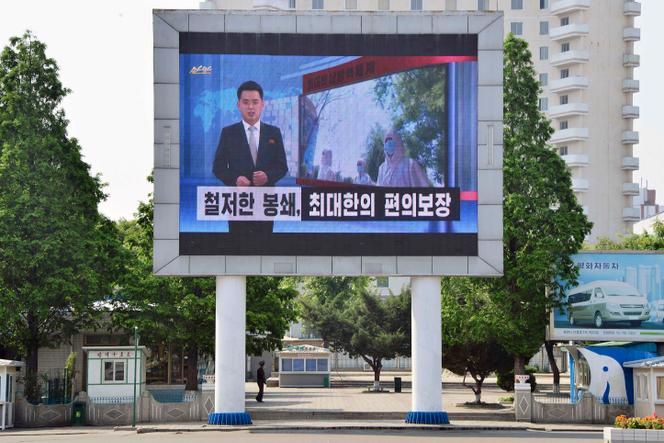


Borders more tightly guarded than ever, trade with China at a standstill, and – despite these draconian measures – an out-of-control Covid-19 epidemic: North Korea has endured three particularly difficult years which it is still struggling to recover from, according to a report by the non-governmental organization Human Rights Watch.
Based on 147 interviews, information from North Korean state media and analysis of satellite images, the report by the human rights organization paints a picture of a society that is stifled by surveillance. The almost total closure of the borders from 2020 to 2022 has prevented escape from the country and put an end to legal trade, but above all to illegal trafficking, which enables many North Koreans to secure additional income.
"The government’s persistent drive to control its population, overbroad and prolonged responses to the Covid-19 pandemic, and expanded nuclear weapons capabilities, have combined with the intensifying external pressures of UN Security Council sanctions to turn North Korea—already effectively a country-wide prison—into an even more repressive and isolated state," writes the report entitled "A Sense of Terror Stronger than a Bullet." It sheds some light on a situation that is all the more unfamiliar given that the few foreign diplomats and NGO employees left the country during the Covid-19 pandemic.
Back in January 2020, the Democratic People's Republic of Korea (DPRK) was one of the first countries to close its borders, just a few weeks after the initial outbreak of the virus in Wuhan, central China. A measure applied to the extreme, as border guards were ordered to "'unconditionally shoot' on sight any person or wild animal" attempting to cross the Chinese border in either direction. The number of escapees dropped from 1,047 in 2019 to 63 in 2021, and 196 in 2023. At least 16 people have been shot dead by guards since 2020, according to the report, which cites various press reports. To secure the border, hundreds of kilometers of barbed wire fences were erected, often in several parallel layers, and special forces were stationed on site.
The presence of these new soldiers has also prevented the illicit trafficking usually undertaken by officers on duty. At the same time, penalties for such activities have been stepped up: In August 2020, the DPRK passed an emergency quarantine law, punishing both the perpetrators of offenses and officials who did not ensure the enforcement of these rules. Penalties range from life sentences of hard labor to capital punishment. A climate of terror was reinforced by other laws, which were passed from 2020 to repress the spread of "anti-socialist ideology and culture", the act of "copying foreign culture" or "using South Korean intonations or slang."
You have 47.42% of this article left to read. The rest is for subscribers only.
